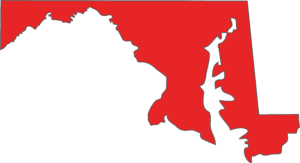Prescription Drug Affordability Board Activity through August 15, 2024
Activities Summary
Colorado clarifies who their Upper Payment Limit rule applies to. Maryland picks six drugs to conduct cost reviews for and requests information from the public in an effort to produce something by year end. Oregon pauses affordability reviews for 2024 while it gathers feedback from stakeholders. Washington considers the eligibility criteria for drugs to be reviewed, looking to states like Colorado for guidance.
Activity by State
The joint meeting was not a joint meeting because The Prescription Drug Affordability Advisory Council (PDAAC) could not attend because of nationwide internet connectivity issues. The board reviewed Policy #5, Upper Payment Limit Policy and Procedure, first issued January 13, 2023. The board discussed substantive edits focused on who the Upper Payment Limit (UPL) applies to. New language in the document clarifies:
“An upper payment limit doesn’t apply to purchase or reimbursement by any federal agency, federal program, Indian Tribe, or nonparticipating self-funding health benefit plans, including, but not limited to purchases ro reimbursements made by Medicare, TRICARE, or the Federal Employee Health Benefits program.”
After this language was approved, the PDAB heard testimony from:
- Bridget Seritt, Advocates for Compassionate Therapy Now
- Brett Johnson, Amgen
- Sarah Kline, CEO of the Epilepsy Foundation of Colorado and Wyoming Kindyl Boyer, Director of Advocacy, National Infusion Center Association (letter)
- Amy B. Goodman, Vice President and Counsel for Policy + Advocacy, Colorado BioScience Association (letter).
(Oral testimony can be found in the video linked above.)
The next joint PDAB/PDAAC meeting will be September 6, 2024.
Maryland has two entities working together: the Prescription Drug Affordability Stakeholder Council (PDASC) and the Prescription Drug Affordability Board (PDAB).
The meeting began with roll call and approval of April 29, 2024 meeting minutes. Deron A. Johnson, Director of State Government Affairs at Amgen opposed the minutes because they did not post questions about the cost of medicine publicly, and because of missing records on the board website. With this vote, the minutes were approved (11:2).
There were no written or oral public comments.
The board discussed the cost review process, identifying six drugs that will undergo cost review: Dupixent, Farxiga, Jardiance, Ozempic, Trulicity, and Skyrizi. (Thirty days of public comment on the referred drugs closed on July 22, 2024.)
Endocrinologist Dr. Sherita Golden pointed out that some of PDAB’s choice of therapeutic alternatives were “not exactly therapeutic alternatives” and were also on the list of drugs up for review.
The PDAB may assemble a dossier of data and analyses for consideration in the cost review study as outlined in COMAR (Code of Maryland Regulations) 14.01.04.05 to determine affordability challenges for the state health care system or high out of pocket costs for patients. They may request information from manufacturers, carriers, HMOs, MCOs, PBMs and wholesale distributors. These requests must be responded to in 30 days unless a 30-day extension is requested.
Feedback was requested on the April 29, 2024 meeting. Deron A. Johnson said that the time windows were not long enough to get responses from industry to provide testimony. This was supported by Dr. Golden and Barry Lipsy. Sean Tunis and Van Mitchell, PDAB chair, asked the board to be aware of “what’s going on in the PDAB world” in other states.
The Upper Payment Limit Action Plan was in process but had not yet been published. The stakeholder council will review the draft with the board. It is not yet public.
Fee assessment regulations were updated and posted in the state register. Updates allow the PDAB to have more flexibility to add and remove entities for the fee assessment.
No public comments were provided.
The next Prescription Drug Affordability Stakeholder Council (PDASC) meeting will be held on Monday, August 26, 2024 at 2:00PM.
The majority of the meeting focused on moving timelines up so that final board decisions could be made at the end of the year.
The PDAB posted a Request for Information (RFI) on July 25, 2024 for four drugs: Farxiga, Jardiance, Ozempic and Trulicity. The RFI expires August 24, 2024. Responders can request an additional 30 days, if they respond before August 24. Board is requesting information (RFI) from manufacturers, carriers, HMOS, MCOs, PBMs and wholesalers.
The Legislative Policy Committee must approve any UPL action plan for the PDAB. First, the Board needs to make a preliminary determination of whether use of a drug “has led or will lead to affordability challenges for the State health care system or high out-of-pocket costs for patients” at the conclusion of the Cost Review Study Process. If so, the Board may engage in a policy review process (hearings, stakeholder interviews, policy research) to consider redress to affordability challenges, including an UPL. Comments on the Draft Upper Payment Limit Action Plan will be accepted until close of business August 26, 2024. The Stakeholder Council will approve the UPL Action Plan at the August 26 meeting.
Board members questioned how the data collection process for patients will be carried out. No answer was provided. The Board is considering literature review for patient reported costs for these drugs. A draft dossier for cost review is projected for the end of the year.
Manufacturers, distributors, carriers and pharmacy benefits managers are assessed annually $1,000 to fund the Prescription Drug Affordability Fund. Currently approximately 1,200 entities have submitted their assessment.
Written comment was provided by:
- Gene Ransom, III, CEO, Maryland State Medical Society (MedChi)
- Manva Singla, M.D., Allergy Asthma Specialists of Maryland
- Kristin Parde, Deputy Vice President, State Policy and Merlin Brittenham, Assistant General Counsel, PhRMA
- Bridget Walsh, VP, Government Affairs and Public Policy, Boehringer Ingelheim
- Judy Jenkins, RN, BSN, MS, Director, U.S. State Government Affairs Johnson and Johnson
The next Prescription Drug Affordability Board meeting will be held on September 10, 2024.
On May 15, 2024, Oregon’s PDAB approved its Generic Drug Report for the Oregon State Legislature. Its conclusion states,
"Generic drugs are an essential component in the process of making prescription drugs more affordable for patients and the health care systems in Oregon. However, brand manufacturers often use strategies to prevent or delay generic drug competition, such as creating authorized generics and pay-for-delay or biosimilar competition agreements, which can increase health care costs by keeping drug prices inflated. The Prescription Drug Affordability Board’s focus on studying generic drugs’ affordability for patients, as well as opportunities for supply chain reform, can help address these challenges to encourage generic use and prevent brand manufacturers from undermining generic competition. Policymakers should continue exploring strategies to promote generic competition and lower drug prices to ensure affordable and high quality health care for all Oregonians."
Meetings
At its June meeting, the board reviewed its work for the year. In 2023, the Oregon Legislature expanded the board’s mission to develop a plan for establishing upper payment limits on drugs that are subject to affordability review. From April through June 2024, the board hosted 23 community meetings and focus groups and met with representatives from hospitals, pharmacies, insurance companies, manufacturers, pharmacy benefit managers, advocacy groups, patients and consumers. The board voted to pause affordability reviews for 2024 so the board can improve criteria and methods used to assess and select drugs in 2025 using refreshed data.
Written comments were provided by:
- CVS Health, UnitedHealth Group, Blue Cross Blue Shield of North Carolina and Independence Blue Cross
- PhRMA
- UnitedHealthcare
The July meeting involved public comment and board inquiry from stakeholders.
Patient and consumer panel
Mark Sturbois, terminal cancer patient, and senior citizen on Medicare and hepatitis C patients stated that he wants new research to continue and blames PBMs for costs.
Insurance company panel
Board question: Considering the pass-through model from West Virginia, how would PBMs be held accountable if UPLs were implemented?
-
- Justin Weiss of Cambia Health Solutions
- Richard Blackwell, Government Relations Director for State of Oregon PacificSource Health Plans
- Tonia Sorrell-Neal, Senior Director, State Affairs, Pharmaceutical Care Management Association (PCMA)
PCMA said that UPLs hamper PBMs ability to negotiate lower drug prices “across the board for the client.” Board members questioned this extensively.
Insurance companies said that the UPLs would cause losses for pharmacists and distribute costs to members. Also concerned about interstate commerce issues.
Manufacturer panel
- Brett Michelin, Senior Director, State Government Affairs, Association for Accessible Medicines (generic and biosimilars)
- Brian Warren, Senior Director, State Government Affairs, Bio
- Liisa Bozinovic, Executive Director, Oregon Bioscience Association
- Dharia McGrew, Director, State Policy, PhRMA
Panelists stated that the board needs to consider the perspectives of specialist providers who will consider some alternative medications infeasible or outdated. They should also consider that patients are buying higher cost drugs instead of lower cost generic versions. They also need to recognize that cost recouping funds research and rare disease groups that will be impacted substantially. Additionally, untested regulation can chill bioscience industry development in the state.
Advocacy group panel
Board question: What groups should be involved in the study and what questions should the board ask:
-
- AARP Public Policy Institute
- AiArthritis IFFAAA
- Bleeding Disorders Counsel
- Can Do Multiple Sclerosis
- Caring Ambassadors Program
- Global Healthy Living Foundation
- Multiple Sclerosis Association of America
- Multiple Sclerosis Foundation
- National Bleeding Disorders Foundation
- National Multiple Sclerosis Society
- National Psoriasis Foundation
- Oregon Coalition for Affordable Prescriptions
- Partnership to Improve Patient Care
- Oregon State Public Interest Research Group
Advocates requested that rare disease and chronic disease patients be treated fairly. UPLs may impact future medicine supply chains and force patients to use substitute medications that have other external costs. For example, capping insulin caused manufacturers to stop production and shift to more profitable medications, which created shortages. Drug prices need to be addressed for all drugs, not just those few deemed unaffordable by the board.
Because UPLs function as a reimbursement cap, they are driving pharmacies to avoid stocking medications that they would sell at a loss. This is impacting patients who need immediate, long term drugs. Additionally medical providers who treat patients in clinics may be impacted by UPLs, hurting their ability to service patients.
Pharmacy panel
-
- Albertsons
- AlignRx
- American Pharmacists Association
- Ardon Health Holdings
- Broadway Pharmacy, North Bend
- Brooklyn Pharmacy, Portland
- Hi-School Pharmacy
- Independent Pharmacy Cooperative
- Irby Pharmacy, Veronia
- LaClinica, Medford
- Managed Healthcare Pharmacy, Eugence
- NACDS
- St. Charles Health System
- Oregon State Pharmacy Association
Board question: Pharmacies have suggested that drug importation may be a potential solution for affordability issues. What challenges do you see for drug importation?
The pharmacists stated and restated that importation is counterproductive to the conversation. It will be expensive and have administrative hurdles. Pharmacists reiterated that the UPL is the bigger problem for pharmacists. As long as importers meet all FDA and DSCSA requirements, they will not be an issue, however PBMs are setting costs that cause pharmacies to lose money on prescriptions.
Drug importation programs are not the solution to decrease the costs. They haven’t seen decreased costs for patients in other states from importation, but they have seen increased risk of opportunities for mishap and rogue activities that create patient risks.
Board question: As it relates to UPLs, what suggestions do you have for the board regarding the UPL model and how would you propose that the patients and providers be protected?
Look towards the federal Inflation Reduction Act which allows the federal government to negotiate with manufacturers for the price of drugs in Medicare Part D. In other states, the PBM can shortchange the pharmacy. Ensure an attached dispensing fee for pharmacy service. Additionally, UPL may only apply to certain patients. How will this be managed at the pharmacy level? If you implement a UPL, you will be impacting the PBM contracts. Pharmacies have costs associated with dispensing, if you talk only about the ingredient cost, you’re not addressing the cost of providing, dispensing and administering drugs.
Hospital, FQHC and provider panel
Board question: Are there contractual problems that UPLs would cause? Would 340B entities help us in this process?
-
- Cascadia Health, Portland
- Central City Concern, Portland
- Kaiser Permanente
- La Pine Community Health Center
- Advent Health Columbia Gorge
- Multnomah County Health Department
- Nara Northwest
- Neighborhood Health Center, Seattle
- One Community Health, Hood River
- Oregon Primary Care Association
- River Bend Hospital, Springfield
- Rogue Community Health, Medford
- Salem Health Hospitals and Clinics
- Samaritan Health Services, Corvallis
- Virginia Garcia Memorial Health Center, Hillsboro
- Yakima Valley Farm Workers Clinic
Multiple representatives from hospitals and clinics said that there were no known contractual problems, but UPLs have an impact on the pharmacy business, and dispensing fees are less than $1. UPLs make it more difficult for pharmacies to serve patients. “Tinkering” with the 340B program “around the edges” on the state level will cause patients to lose access. Please carve out 340B entities from the UPLs. Implementing UPLs will fundamentally limit access to health care for the vulnerable.
Written comments were submitted by:
-
- Bridget Walsh, VP, Government Affairs and Public Policy, Boehringer Ingelheim
- Blasine Penkowski, Chief Strategic Customer Officer, Johnson & Johnson Health Care Systems Inc.
- Harmeet Dhillon Head, Public Policy GSK and Carie Harter Senior Director, Government Relations ViiV
The next meeting of the PDAB is August 21, 2024. There will be a presentation on the Upper Payment Limit deliverable (SB192) and a discussion on the affordability review process.
The PDAB discussed the Eligible Drug List Identification Policy. Clarification between drugs and drug ingredients, including biosimilars was requested. The legal team will look into it going forward and the item is now on hold.
No vote was taken on the preview of the Annual Report to the Legislature.
The board discussed desired updates to the Washington Administrative Code. They are creating sections of the annual report. At the next meeting they will discuss Wholesale Acquisition Cost (WAC) and UPLs.
They also discussed the current eligible drug list and the future drug selection methodology. They are using Colorado as a yardstick, with a threshold of $60,000 instead of $30,000 as Colorado has. The Board questioned the accuracy of drug costs and patient cost calculations. Members also asked whether drugs need to be separated by dosage strength because of separate NDCs. Per legislation, the board can choose 24 drugs to review. They are actively looking at PDABs in other states for pointers, and must consider drugs on multiple lists as well as costs, utilization and treatment options.
Written comments were provided by:
- Dharia McGrew, Director, State Policy, PhRMA (letter)
- Tiffany Westrich-Robertson, Ensuring Access through Collaborative Health Coalition (letter)
The next meeting is September 18, 2024.
Standout resources and coverage
“Prescription Drug Affordability Boards and the ADA: A Potential Conflict?” by HIV/HCV Watch: Could state efforts to lower prescription drug prices inadvertently violate a federal civil rights law? It’s a question being asked about Prescription Drug Affordability Boards (PDABs) as they gain traction across the United States.





